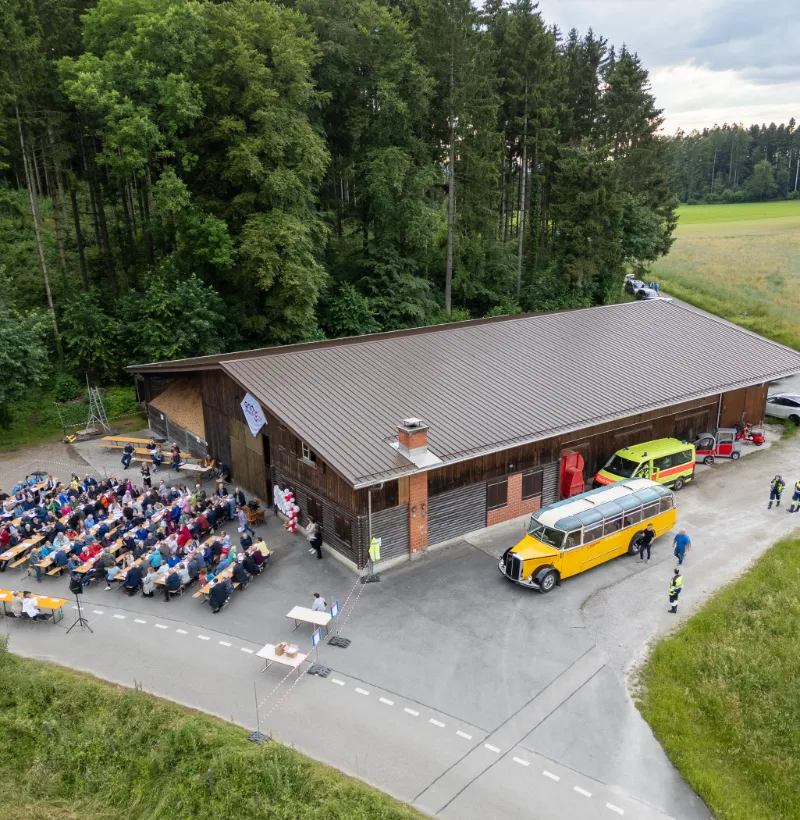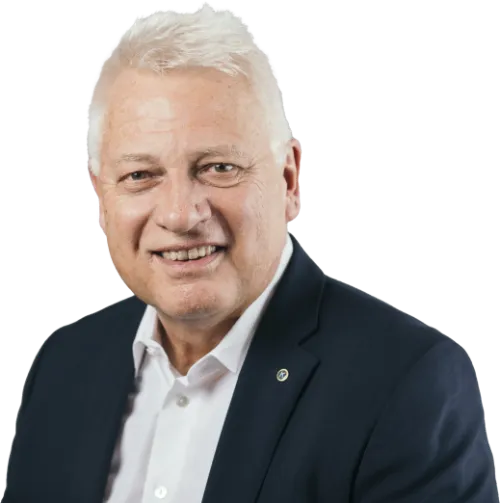
André Guyer, Municipal President, Aesch (ZH)
 Source: Municipality of Aesch (ZH)
Source: Municipality of Aesch (ZH)Mr. Guyer, what was your problem?
In Aesch, much revolves around hotly debated topics: a new gymnasium, the repurposing of buildings, and traffic-calmed zones. These involve significant financial commitments and long-term planning for decades ahead.
We wanted to mobilize and involve as broad a segment of the electorate as possible — definitely more than the usual 100 people who attend municipal assemblies. That’s where BrainE4’s promise came in handy: to enable an «interactive population dialogue.»
Less than 10% of the electorate attend municipal assemblies. How was it with BrainE4?The online dialogue was anonymous. However, we assume that with 241 participants, we reached a representative portion of the electorate of 1,050. Voter turnout in Aesch is traditionally high.«The team at BrainE4 and we were positively surprised by the active participation.»
Nevertheless, both we and the team at BrainE4 were positively surprised by the active participation. Moreover, we also reached people who we would not have reached through the traditional assembly process. Over 60% of the participants in the online dialogue did not attend the information evening in the community hall. Additionally, the survey was conducted in a very structured manner. And last but not least: people clearly enjoyed it.Last year, Aesch celebrated its 900th anniversary. You also held a kind of «Landsgemeinde» then.We wanted to try something new. It was well received. We thought about how we could also conduct this lively discussion digitally. That’s where BrainE4 fit perfectly: this web app is like a «digital Landsgemeinde.»You also use other digital solutions. Where do you see the main differences?It is truly a dialogue among the participants. I haven’t seen this anywhere else: the ability to contribute your own ideas and weigh them against each other.
«We thus also reached people who we would not have reached through the traditional assembly process.»
How do you assess the results?There were no big surprises. But the reports provided us with more robust, reliable data than a municipal assembly or an information evening could deliver. Moreover, voices were heard that otherwise would not have spoken out loudly.
1/2

«The reports provided us with more robust, reliable data.»
What is special about this «digital Landsgemeinde»?We asked open questions about specific projects. For example: «Where do you see the greatest opportunities regarding the proposed initiatives?» People could enter their own answers on the platform and evaluate the opinions of others.You spoke of «more robust» data. As an educated mathematician, that is important to you.Yes. We now have a more robust foundation than before — but the democratic processes remain the same: planning, proposals, votes. However, if a significant share of eligible voters actively participates in a dialogue, then we can trust the result.Who would you recommend BrainE4 to?Anyone who is genuinely interested in capturing the diversity of opinions and ideas on a given issue will find BrainE4 to be the right instrument. However, if the goal is merely to promote one’s own opinion, it is not the right instrument. In the public sector, I see potential applications both at the municipal and cantonal levels. But I also see value for the commercial sector.Your conclusion?It was a very positive experience and a very good foundation for further decisions.Interview: thk

8904 Aesch ZH1'700 inhabitants1'050 eligible voters
Online Dialogue:5 open questions241 participants275 opinions and ideas23'359 interactions
Municipal President:André GuyerPhone: 079 473 57 74Mail: andre.guyer@aesch-zh.ch

2/2

